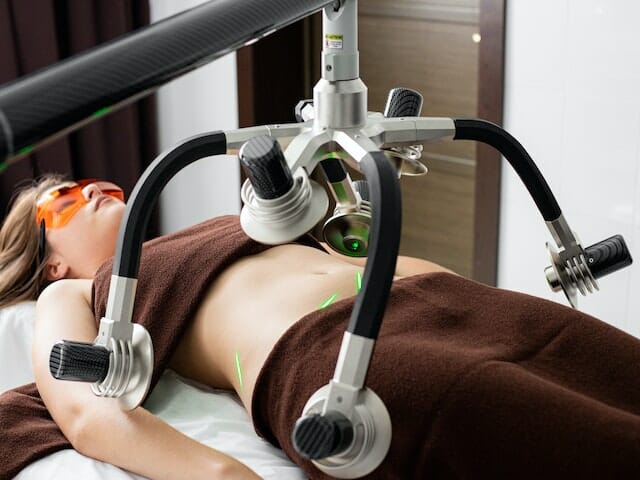Causes of Weight Loss from a Medical Perspective
Maintaining an ideal weight is crucial for overall health as it helps prevent conditions such as heart disease, diabetes, and obesity. However, some individuals may struggle to manage their weight and may require medical assistance. Medical professionals may recommend a Medical Weight Loss program, which can include tailored nutrition plans, vitamin injections, prescription medications, and in some cases, surgical procedures. These programs employ various strategies to assist individuals in achieving their weight loss goals. In this article, we will explore how these strategies can help promote effective weight loss.
Benefits of Medical Nutrition Plans in Weight Loss
Individuals aiming to lose excess weight often collaborate with certified dieticians or specialized doctors to receive guidance on consuming a balanced diet and making healthier choices.
These nutrition plans typically emphasize high protein and fiber intake, which promote satiety without excessive caloric consumption and reduce the intake of fast-digesting carbohydrates. Including fruits, vegetables, nuts, lean meats, and whole grains in these diets aids in increasing satiety, supporting muscle development, maintaining blood sugar levels, and enhancing cardiac health. These factors collectively contribute to weight loss by boosting metabolism to burn stored fat.
Moreover, these nutrition plans are designed to avoid severe food restrictions to prevent cravings and feelings of deprivation, thereby positively impacting weight loss outcomes. Additionally, individuals are encouraged to engage in enjoyable physical activities and incorporate stress management techniques to further support weight reduction.
Understanding the Mechanism of Prescription Weight Loss Medications
Prescription weight loss medications are typically prescribed for individuals with obesity or a body mass index (BMI) of at least 27. Those with conditions such as type 2 diabetes or high blood pressure combined with excess weight may also be considered candidates for such medications.
Most prescription weight loss medications work by either increasing feelings of fullness or reducing appetite. Some may also affect the body’s fat absorption processes. Certain medications mimic intestinal hormones that signal to the brain when the stomach is full, while others enhance blood sugar regulation by interacting with hormone receptors like GLP-1 and GIP. By mimicking specific hormones, these medications can help suppress hunger and promote feelings of satiety.
The Role of Hormone Therapy in Weight Management
Hormonal imbalances can contribute to weight gain, with cortisol being a key hormone influencing weight fluctuations in both men and women. During periods of stress, cortisol levels rise, leading to spikes in blood sugar levels and potential fatigue and cravings.
Hormone therapy is employed to address hormonal imbalances and aid in weight management for both men and women. Restoring normal levels of hormones such as estrogen and cortisol can improve skin elasticity, prevent excess fat accumulation, and promote weight loss. Research indicates that Hormone Replacement Therapy (HRT) is effective in reducing abdominal fat and can influence factors such as plasma lipids, insulin response, and metabolism.
Exploring the Effects of Lipotropic Injections on Weight Loss
Lipotropic injections contain a potent blend of amino acids, vitamins, and minerals that stimulate natural fat-burning processes in the body. By aiding the liver in breaking down fat and converting it into energy, these injections facilitate weight loss. They work by enhancing metabolism, making it easier to convert fat into energy, and promoting the removal of bile and fat from the liver. Increased energy levels can also improve overall well-being and mood, while maintaining lean muscle mass can help burn more calories.
Lipotropic injections play a supportive role in weight reduction by promoting fat loss through a healthy metabolism when combined with lifestyle changes. Additionally, they can help regulate serotonin levels, a hormone that influences mood, sleep, learning, and vascular constriction.
Understanding CoolSculpting for Weight Management
CoolSculpting is a non-surgical fat reduction technique that targets and reduces the number of fat cells in specific body areas. This method aims to address stubborn fat pockets that are challenging to eliminate through diet and exercise alone.
During a CoolSculpting session, a device with cooling paddles is used to freeze and destroy fat cells in the targeted area. Over time, the body naturally eliminates around 20% to 25% of the fat cells in that region. While not a direct weight loss method, CoolSculpting can help contour the body by reducing localized fat deposits. To maintain results, individuals should follow a healthy diet and exercise regimen.
The Mechanism of Bariatric Surgery in Weight Management
Bariatric surgery involves altering the stomach’s size or function to limit food intake. During the procedure, a portion of the stomach is either removed or isolated, creating a smaller stomach pouch that can hold limited food quantity. This restriction reduces the overall consumption of food and decreases nutrient absorption in the digestive tract.
Post-surgery, changes in the stomach and small intestine’s functionality contribute to weight loss by promoting reduced food intake and altered nutrient absorption. As a result, the body’s metabolism, blood pressure, cholesterol levels, and blood sugar regulation can improve. Patients typically eat less but feel satisfied due to the decreased stomach capacity, aiding in weight management.


















